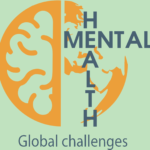What mental illness means in different cultures: Perceptions of mental health among refugees from various countries of origin
DOI:
https://doi.org/10.56508/mhgcj.v5i2.126Keywords:
refugee mental health, perceptions of mental health, stigma, barriers, mental illness, mental health treatmentAbstract
Introduction: Mental illness remains a significant issue in refugees worldwide. Internationally, there continues to be stigma surrounding mental health, mental illness, and mental health treatment. Cultural stigma is just one of many barriers to mental healthcare for refugees. Perceptions of mental health are culture-specific and continue to play a role in refugees.
Purpose: The purpose of this review study is to make distinctions between the perceptions of mental health of refugees based on country of origin because knowing these cultural differences has the potential to improve refugee mental healthcare. This knowledge could contribute to treatment approaches and help break some of the barriers to mental healthcare for refugees.
Methodology: An extensive literature review of relevant articles published between 2000-2021 was performed using the databases APA PsycInfo, Global Health, MEDLINE via Ovid, CINAHL Plus with Full Text, and Google Scholar. The following search terms, in addition to other related and relevant terms, were used: “mental health, refugees, mental health barriers, perceptions of mental illness, country of origin.”
Results: There were both numerous similarities and differences between the perceptions of mental health among refugees from different cultures. There were similarities in terms of mental health stigma, with certain cultures thinking of mental health/illness as taboo, as shameful, or associating it with evil spirits. A few of the cultures studied had similar ideas about the causes of mental illness, believing it was due to traumatic events or possession by evil spirits. The refugee groups had some common treatment options, including informal conversation, religious-based ideas, and community-level solutions. Some differences between refugees from different cultures involved certain symptoms associated with mental health, including physical symptoms, and differing degrees of religiosity.
Discussion: Based on studies reviewed about the perceptions of mental health of various refugee cultures, many recommendations are proposed to improve refugee mental healthcare. Suggestions include focusing on cultural competency and community-level solutions, in addition to implementing mobile health clinics and telehealth.
Conclusions: This review discusses the perceptions of mental health, mental illness, and mental health treatment of refugees from numerous countries of origin. It is unique in its inclusion of different groups of refugees. Culture seems to play a significant role in the perceptions encountered. Keeping culture in mind, several recommendations are made to improve refugee mental healthcare, such as more integrative treatment methods and telehealth.
References
Admissions and arrivals. (2019). Refugee Admissions Report. https://www.wrapsnet.org/admissions-and-arrivals/
Adu, J., Oudshoorn, A., Anderson, K., Marshall, C. A., Stuart, H., & Stanley, M. (2021). Policies and Interventions to Reduce Familial Mental Illness Stigma: A Scoping Review of Empirical Literature. Issues in Mental Health Nursing, 1-15. https://doi.org/10.1080/01612840.2021.1936710 DOI: https://doi.org/10.1080/01612840.2021.1936710
Al Laham, D., Ali, E., Mousally, K., Nahas, N., Alameddine, A., & Venables, E. (2020). Perceptions and Health-Seeking Behaviour for Mental Illness Among Syrian Refugees and Lebanese Community Members in Wadi Khaled, North Lebanon: A Qualitative Study. Community Mental Health Journal, 56(5), 875-884. https://doi.org/https://doi.org/10.1007/s10597-020-00551-5 DOI: https://doi.org/10.1007/s10597-020-00551-5
Andrade, L. H., Alonso, J., Mneimneh, Z., Wells, J. E., Al-Hamzawi, A., Borges, G., Bromet, E., Bruffaerts, R., de Girolamo, G., de Graaf, R., Florescu, S., Gureje, O., Hinkov, H. R., Hu, C., Huang, Y., Hwang, I., Jin, R., Karam, E. G., Kovess-Masfety, V., Levinson, D., Matschinger, H., O'Neill, S., Posada-Villa, J., Sagar, R., Sampson, N. A., Sasu, C., Stein, D. J., Takeshima, T., Viana, M. C., Xavier, M., & Kessler, R. C. (2014). Barriers to mental health treatment: results from the WHO World Mental Health surveys. Psychological Medicine, 44(6), 1303-1317. https://doi.org/10.1017/S0033291713001943 DOI: https://doi.org/10.1017/S0033291713001943
Bettmann, J. E., Penney, D., Clarkson Freeman, P., & Lecy, N. (2015). Somali Refugees' Perceptions of Mental Illness. Social Work in Health Care, 54(8), 738-757. https://doi.org/https://doi.org/10.1080/00981389.2015.1046578 DOI: https://doi.org/10.1080/00981389.2015.1046578
Blackmore, R., Boyle, J. A., Fazel, M., Ranasinha, S., Gray, K. M., Fitzgerald, G., Misso, M., & Gibson-Helm, M. (2020). The prevalence of mental illness in refugees and asylum seekers: A systematic review and meta-analysis. PLOS Medicine, 17(9), e1003337. https://doi.org/10.1371/journal.pmed.1003337 DOI: https://doi.org/10.1371/journal.pmed.1003337
Boynton, L., Bentley, J., Jackson, J. C., & Gibbs, T. A. (2010). The Role of Stigma and State in the Mental Health of Somalis. Journal of Psychiatric Practice®, 16(4), 265-268. https://doi.org/10.1097/01.pra.0000386914.85182.78 DOI: https://doi.org/10.1097/01.pra.0000386914.85182.78
Burchert, S., Alkneme, M. S., Bird, M., Carswell, K., Cuijpers, P., Hansen, P., Heim, E., Harper Shehadeh, M., Sijbrandij, M., van't Hof, E., & Knaevelsrud, C. (2019). User-Centered App Adaptation of a Low-Intensity E-Mental Health Intervention for Syrian Refugees [Original Research]. Frontiers in Psychiatry, 9(663). https://doi.org/10.3389/fpsyt.2018.00663 DOI: https://doi.org/10.3389/fpsyt.2018.00663
Byrow, Y., Pajak, R., Specker, P., & Nickerson, A. (2020). Perceptions of mental health and perceived barriers to mental health help-seeking amongst refugees: A systematic review. Clinical Psychology Review, 75, 101812. https://doi.org/https://doi.org/10.1016/j.cpr.2019.101812 DOI: https://doi.org/10.1016/j.cpr.2019.101812
Carroll, J., Epstein, R., Fiscella, K., Gipson, T., Volpe, E., & Jean-Pierre, P. (2007). Caring for Somali women: Implications for clinician–patient communication. Patient Education and Counseling, 66(3), 337-345. https://doi.org/https://doi.org/10.1016/j.pec.2007.01.008 DOI: https://doi.org/10.1016/j.pec.2007.01.008
Fellmeth, G., Plugge, E., Paw, M. K., Charunwatthana, P., Nosten, F., & McGready, R. (2015). Pregnant migrant and refugee women's perceptions of mental illness on the Thai-Myanmar border: a qualitative study. BMC Pregnancy & Childbirth, 15, 93. https://doi.org/https://doi.org/10.1186/s12884-015-0517-0 DOI: https://doi.org/10.1186/s12884-015-0517-0
Gavin, N. I., Gaynes, B. N., Lohr, K. N., Meltzer-Brody, S., Gartlehner, G., & Swinson, T. (2005). Perinatal depression: a systematic review of prevalence and incidence. Obstet Gynecol, 106(5 Pt 1), 1071-1083. https://doi.org/10.1097/01.AOG.0000183597.31630.db DOI: https://doi.org/10.1097/01.AOG.0000183597.31630.db
Giacco, D., & Priebe, S. (2018). Mental health care for adult refugees in high-income countries. Epidemiol Psychiatr Sci, 27(2), 109-116. https://doi.org/10.1017/s2045796017000609 DOI: https://doi.org/10.1017/S2045796017000609
Golchert, J., Roehr, S., Berg, F., Grochtdreis, T., Hoffmann, R., Jung, F., Nagl, M., Plexnies, A., Renner, A., König, H.-H., Kersting, A., & Riedel-Heller, S. G. (2019). HELP@APP: development and evaluation of a self-help app for traumatized Syrian refugees in Germany – a study protocol of a randomized controlled trial. BMC Psychiatry, 19(1), 131. https://doi.org/10.1186/s12888-019-2110-y DOI: https://doi.org/10.1186/s12888-019-2110-y
Im, H., Rodriguez, C., & Grumbine, J. M. (2021). A multitier model of refugee mental health and psychosocial support in resettlement: Toward trauma-informed and culture-informed systems of care. Psychological Services, 18(3), 345-364. https://doi.org/10.1037/ser0000412 DOI: https://doi.org/10.1037/ser0000412
Johnson, C. E., Ali, S. A., & Shipp, M. P. L. (2009). Building Community-Based Participatory Research Partnerships with a Somali Refugee Community. American Journal of Preventive Medicine, 37(6), S230-S236. https://doi.org/10.1016/j.amepre.2009.09.036 DOI: https://doi.org/10.1016/j.amepre.2009.09.036
Johnson, H., & Thompson, A. (2008). The development and maintenance of post-traumatic stress disorder (PTSD) in civilian adult survivors of war trauma and torture: A review. Clinical Psychology Review, 28(1), 36-47. https://doi.org/https://doi.org/10.1016/j.cpr.2007.01.017 DOI: https://doi.org/10.1016/j.cpr.2007.01.017
Kerbage, H., Marranconi, F., Chamoun, Y., Brunet, A., Richa, S., & Zaman, S. (2020). Mental Health Services for Syrian Refugees in Lebanon: Perceptions and Experiences of Professionals and Refugees [Research Support, Non-U.S. Gov't]. Qualitative Health Research, 30(6), 849-864. https://doi.org/https://doi.org/10.1177/1049732319895241 DOI: https://doi.org/10.1177/1049732319895241
Kim, W., Yalim, A. C., & Kim, I. (2021). "Mental Health Is for Crazy People": Perceptions and Barriers to Mental Health Service Use among Refugees from Burma. Community Mental Health Journal, 57(5), 965-972. https://doi.org/10.1007/s10597-020-00700-w DOI: https://doi.org/10.1007/s10597-020-00700-w
Kirmayer, L. J., Narasiah, L., Munoz, M., Rashid, M., Ryder, A. G., Guzder, J., Hassan, G., Rousseau, C., Pottie, K., Canadian Collaboration for, I., & Refugee, H. (2011). Common mental health problems in immigrants and refugees: general approach in primary care. CMAJ : Canadian Medical Association journal = journal de l'Association medicale canadienne, 183(12), E959-E967. https://doi.org/10.1503/cmaj.090292 DOI: https://doi.org/10.1503/cmaj.090292
Koesters, M., Barbui, C., & Purgato, M. (2018). Recent approaches to provision of mental healthcare in refugee populations. Current Opinion in Psychiatry, 31(4), 368-372. https://doi.org/10.1097/YCO.0000000000000428 DOI: https://doi.org/10.1097/YCO.0000000000000428
MacDowell, H., Pyakurel, S., Acharya, J., Morrison-Beedy, D., & Kue, J. (2020). Perceptions Toward Mental Illness and Seeking Psychological Help among Bhutanese Refugees Resettled in the U.S. Issues in Mental Health Nursing, 41(3), 243-250. https://doi.org/https://doi.org/10.1080/01612840.2019.1646362 DOI: https://doi.org/10.1080/01612840.2019.1646362
Major, B., & O'Brien, L. T. (2005). The Social Psychology of Stigma. Annual Review of Psychology, 56(1), 393-421. https://doi.org/10.1146/annurev.psych.56.091103.070137 DOI: https://doi.org/10.1146/annurev.psych.56.091103.070137
Maleku, A., Soukenik, E., Haran, H., Kirsch, J., & Pyakurel, S. (2021). Conceptualizing Mental Health Through Bhutanese Refugee Lens: Findings from a Mixed Methods Study. Community Ment Health J, 1-18. https://doi.org/10.1007/s10597-021-00835-4 DOI: https://doi.org/10.1007/s10597-021-00835-4
Palmer, D. (2006). Imperfect prescription: mental health perceptions, experiences and challenges faced by the Somali community in the London Borough of Camden and service responses to them. Primary Care Mental Health, 4(1). https://www.researchgate.net/publication/233569776_Imperfect_prescription_Mental_health_perceptions_experiences_and_challenges_faced_by_the_Somali_community_in_the_London_Borough_of_Camden_and_service_responses_to_them
Patel, N., Kellezi, B., & Williams, A. C. (2014). Psychological, social and welfare interventions for psychological health and well-being of torture survivors. Cochrane Database Syst Rev(11), Cd009317. https://doi.org/10.1002/14651858.CD009317.pub2 DOI: https://doi.org/10.1002/14651858.CD009317.pub2
Stewart, D. E., Robertson, E., Dennis, C. L., & Grace, S. L. (2003). POSTPARTUM DEPRESSION: LITERATURE REVIEW OF RISK FACTORS AND INTERVENTIONS.
Syria regional refugee response. (2019). https://data2.unhcr.org/en/situations/syria
Wong, E. C., Marshall, G. N., Schell, T. L., Elliott, M. N., Hambarsoomians, K., Chun, C.-A., & Berthold, S. M. (2006). Barriers to mental health care utilization for US Cambodian refugees. Journal of Consulting and Clinical Psychology, 74(6), 1116-1120. https://doi.org/10.1037/0022-006X.74.6.1116 DOI: https://doi.org/10.1037/0022-006X.74.6.1116

Published
How to Cite
Issue
Section
License
Copyright (c) 2022 Sarah Moses, David Holmes, MD

This work is licensed under a Creative Commons Attribution-NonCommercial 4.0 International License.








 E-mail us: viktor.vus@mhgcj.org
E-mail us: viktor.vus@mhgcj.org 